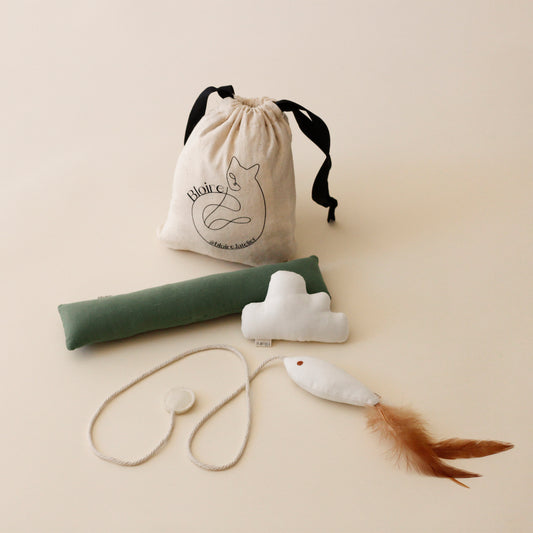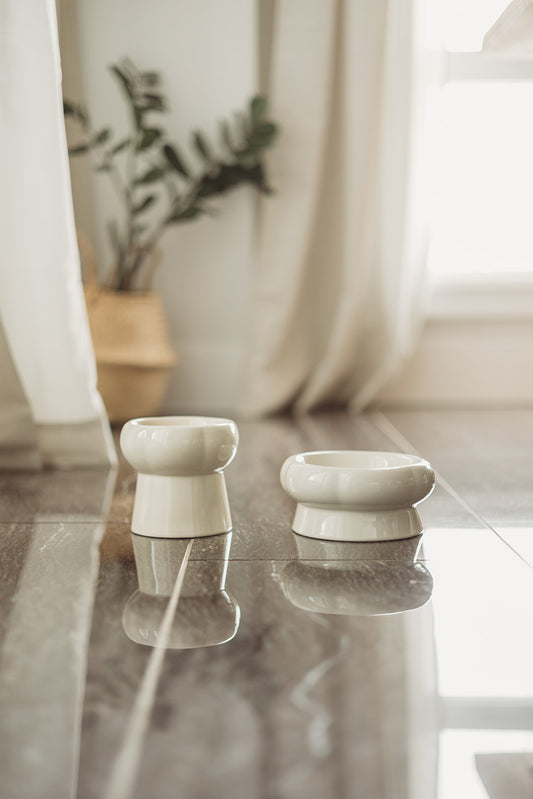5 ways to help you cope with cat allergies
Every cat lover’s worst nightmare is finding out they’re allergic to their own babies. So, after a consult with an allergist, and finding out I am clinically allergic to cats, I was not happy. The first thing I told her was: " I am not getting rid of my babies, impossible." To my surprise, she told me, you don’t have to (as if it would ever be an option).
I went to the consult because my symptoms in the winter had been horrible, and I couldn’t put my finger on the problem. Yet, came spring and everything was then fine. I had, in January adopted a perfect little white rescue, Teddy, but that was also coupled with house renovations that could also trigger my allergies all too well. My symptoms were intense that winter, but since then are very much manageable. And so, after a long conversation with the doctor, I realized how, almost unknowingly, my everyday habits helped me greatly in reducing my symptoms, and when I told the allergist about my life habits, she told me they were probably the reasons why I could control my allergies so well. So, here are a few tips for you, cat lovers who also suffer from allergies.
Give yourself and your cat time
If I had ever doubted the efficiency of desensitization, I no longer can. When I adopted my second cat, my allergies went through the roof. I could not believe I would have puffy, crackled red eyes for the rest of my life, but had to accept it, since adopting a cat is for life. The best advice I received was to wait it out, at least three months for my body to get used to the new arrival. When you are in a constant state of allergies, three months can seem like a long time. After a few weeks, I just stopped caring what I looked like and the three months were over before I knew it, and my allergies became tolerable by that time. Slowly but surely, my body had gotten accustomed to my cat. Cats have individual levels of allergens. I have many friends allergic to cats that had no problems when I had one cat but now suffer from allergies ever since I’ve gotten my second one. So, I have to assume that my perfect little Theodore is more of a trigger than Benjamin. Yet, he is my fur child, and he will be with me for the rest of my life.
Wash your cat every week
I know cats hate water, but I’ve been conditioning my cats from when they were babies, and it really seems to help. One week I wash them with very gentle cat shampoo and on the other week, I only wash them with water. It helps to wash away the allergens they’ve put on their fur during the week.
Vacuum 3 times a week
I know, many of you will say that this is just too much time, and I totally agree. I have a three-story house, so it is very time-consuming, therefore 2 years ago I invested in a robot vacuum that maps my house and I have never looked back since. Sure, it doesn’t have legs to go down or up the stairs, so I must move it around, but it still saves me a lot of time. That only leaves the stairs and I clean them with a hand vacuum.
Keep your cat out of the bedroom
GUILTY, I have never been able to abide by this rule. Every time I close my door and they just cry right outside to come in, it breaks my heart and I give in. So if your heart prevents you from following this advice, skip directly to no 4. If it is too much of a concern for you, if you can prevent your cat from entering the room, it will greatly help your allergies since you’ll have a whole 8 hours without any exposure to their allergens and it will calm your system down.
Wash your linens once a week
If rule #3, is just impracticable for you, you need to make sure to keep your room as clean as possible. For me, this means washing my sheets once a week and the duvet covers once every two weeks. I manage this by having a duvet and a duvet cover instead of a quilt.
And so, these are the rules that have helped me cope with my allergies. Most days, I find that I can’t even tell I am allergic to cats, but when I am sleep-deprived, I still need to use the occasional allergy pill.
I hope these tips can be useful for you. Please leave us a comment if you’d like to hear more tips about managing your allergies to cats!
P.S. I am not a veterinarian or any kind of medical expert, these tips are only based on experience.
Bloire advises consumers to always seek the advice of a veterinarian, veterinary specialist or other qualified veterinary health care provider with any questions regarding a pet’s health or medical conditions. Never disregard, avoid or delay in obtaining medical advice from your veterinarian or other qualified veterinary health care provider because of something you have read on this site. If you have or suspect that your pet has a medical problem or condition, please contact a qualified veterinary health care professional immediately.












